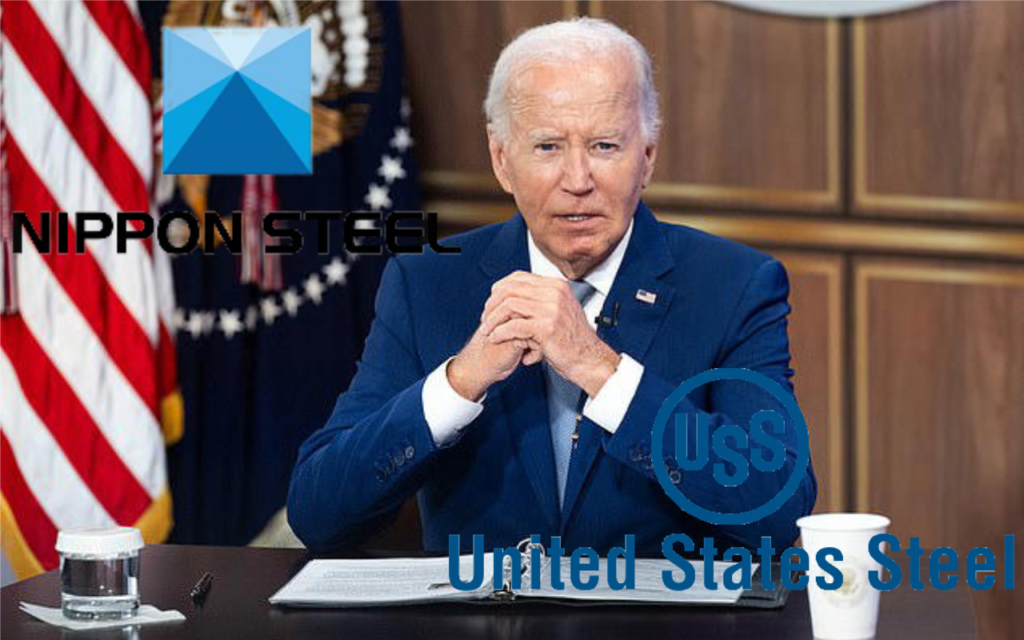Table of Contents

Biden Blocks Nippon Steel $14.9 Billion U.S. Steel Acquisition
President Joe Biden has decided to block Nippon Steel’s proposed $14.9 billion purchase of U.S. Steel. This decision, reportedly made despite internal disagreements among advisors, ends a contentious deal aimed at expanding Nippon Steel’s global footprint.
Key Reasons for Blocking the Deal
- National and Economic Security
Biden emphasized the importance of keeping U.S. Steel under domestic ownership to protect national interests. - Union and Political Opposition
The powerful United Steelworkers union and several politicians opposed the acquisition, voicing concerns about labor rights and strategic control.
Impacts of the Decision
- Strain on U.S.-Japan Relations
Japanese Prime Minister Shigeru Ishiba had urged Biden to approve the deal, citing the importance of U.S.-Japan ties in addressing challenges in the Indo-Pacific. - Investor Concerns
Analysts warn that blocking the deal may deter future international investment in politically sensitive industries in the U.S. - Economic Consequences for Nippon Steel
Nippon Steel faces a $565 million penalty due to the deal’s collapse, along with potential disruptions to its global growth strategy.
Attempts to Address Concerns
Nippon Steel made several concessions, including:
- Offering to relocate its U.S. headquarters to Pittsburgh.
- Committing to honor agreements with the United Steelworkers union.
- Proposing to grant the U.S. government veto power over production cuts.
Despite these efforts, the acquisition was ultimately denied.
Broader Context
This decision underscores the U.S. government’s focus on maintaining domestic control over key industries. It reflects growing concerns about geopolitical risks, particularly in light of tensions with China and the need for strong alliances in the Indo-Pacific.
Legal and Strategic Next Steps
Nippon Steel has indicated it may pursue legal action to challenge the decision, though experts doubt the feasibility of such efforts. The deal’s collapse may prompt the company to reevaluate its international expansion plans.